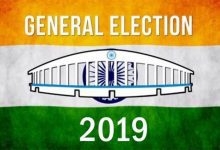The political temperature has soared so much that any talk of cooperation being mentioned by the ruling party leaders for passing the bills, is being dealt with contempt by the Congress and the other opposition leaders. The Congress President Rahul Gandhi is in the foulest mood vis a vis the Prime Minister Narendra Modi and he is looking for any opportunity to hit back at the PM. Modi and the senior BJP leaders open diatribes against the Gandhi family, have widened the area of confrontation and possibly the coming Parliament session will be a victim of that. A report, for Different Truths.
The monsoon session of Parliament beginning on July 18 is expected to see the sharpest confrontation between the BJP and the Congress-led opposition making the smooth functioning of the proceedings of both Lok Sabha and Rajya Sabha impossible. Right now, the political temperature has soared so much that any talk of cooperation being mentioned by the ruling party leaders for passing the bills, is being dealt with contempt by the Congress and the other opposition leaders. The Congress President Rahul Gandhi is in the foulest mood vis a vis the Prime Minister Narendra Modi and he is looking for any opportunity to hit back at the PM. Modi and the senior BJP leaders open diatribes against the Gandhi family, have widened the area of confrontation and in all possibility, the coming Parliament session, will be a victim of that.
The BJP-led government is worried about the passing of the key economic bills which were earlier issued as ordinances as the government leadership thought it fit that those needed emergency action and the official legislation formalities could be taken up later in the monsoon session. These include the Insolvency and Bankruptcy Code (Amendment) Bill replacing the ordinance and the Fugitive Economic Offenders Bill replacing the ordinance. The IBC Bill amendment recognises home buyers as financial creditors and allows promoters of MSME to bid for their stressed firms if they are not willing defaulters. Minister Arun Jaitley fought hard to promulgate the ordinance. Though he is recuperating now and the finance ministry is being looked after by Piyush Goyal, Jaitley is making all efforts along with the PMO to ensure that both these bills get Parliament’s approval since the provisions were given immediate effect via ordinances.
The worry for the government is that any failure by the Parliament to pass these two bills during the monsoon session will make a mess of the government decisions. The winter session of Parliament generally meets in the second half of November and this year, Prime Minister is in such frame of mind that he might opt for preponing the Lok Sabha poll from April/May 2019 to November/December this year. The finance ministry does not want to take any risks about these two bills and there are desperate efforts to persuade the opposition to support the two bills at least in the coming monsoon session.
All indications suggest that the Congress and the other opposition parties are not ready to allow smooth sailing for these two bills in Rajya Sabha where they have a majority. Even before the bills are taken for consideration, the ruling party and the opposition will confront on the issue of election of the Deputy Chairman of Rajya Sabha. The present deputy chairman P J Kurien’s term expires before the session starts and the BJP is planning to put up a candidate of the ruling combination for the deputy chairman post knowing that the NDA has no majority in the Rajya Sabha. The Congress is now in a mood for total opposition unity and the Congress President is ready to support a candidate of any other opposition party who will be the common candidate of the opposition. There is every possibility that the entire opposition will opt for a senior Rajya Sabha member of Trinamool Congress as the opposition nominee. If there is total unity of the opposition, it is difficult for the ruling BJP to have its candidate elected in a contest, even taking into account that AIADMK MPs will not be voting for the opposition candidate.
Amidst this atmosphere of confrontation, the talk of the government leaders including the Prime Minister for cooperation from the Congress and the opposition in passing the vital two bills, will not cut any ice. The monsoon session of Parliament, which will have 18 sittings, will also consider the triple talaq bill, and constitutional status for the National Commission for OBCs. Since the campaign for the Lok Sabha elections has already started, all the political parties will look at the issues from their respective political mileage. As regards triple talaq bill, the situation is very complicated and the BJP is directly trying to win over the educated and forward-looking Muslim women through it stand. The Congress, as a part of its strategy, will not allow BJP to make political mileage out of its actions just a few months ahead of the crucial Lok Sabha poll.
The last budget session turned out to be the least productive in 18 years due to serious political differences between the ruling and the opposition parties. The BJP should have tried to mend fences with the opposition by not contesting the Deputy Chairman’s post in Rajya Sabha. Even there is time now, if the NDA parties decide to give the post to the opposition candidate as a good gesture, the ground could have been prepared for a smoother monsoon session, but the aggressive stance of the BJP and the Government has ruled out that possibility. The situation in monsoon session might be far worse compared to the budget session.
Of the 40 odd bills listed for consideration in the budget session, only two were approved by the Lok Sabha without discussion. The key pending bills which could be taken up in the monsoon session includes also the Prevention of Corruption (Amendment) Bill 2013 which requires investigating agencies to get more sanction of the appropriate authority in the government to investigate officials including retired ones. Another key pending bill is the Financial Resolution and Deposit Insurance Bill, 2017 under which a bail-in clause has been proposed as one of the resolution tools in case of i9nsolvency in a bank wherein depositors will have to bear a part of the cost of the resolution by a corresponding reduction in their claims. This bill has been flayed by the experts as also the depositors’ organisations and the bank unions. Though the finance ministry is claiming that there is no threat to the security of deposits, experts are saying that the bank deposits have been put at a risk due to the provisions of the bill. There will be severe opposition attack against the provisions of this bill. The ad hoc finance minister will have a tough task in justifying this bill in Parliament.
Nitya Chakraborty
©IPA Service
Photo from the Internet
#financialResolution #InsuranceBill #IndianPolitics #Government #Parliament #Congress #NDA #DifferentTruths





 By
By

